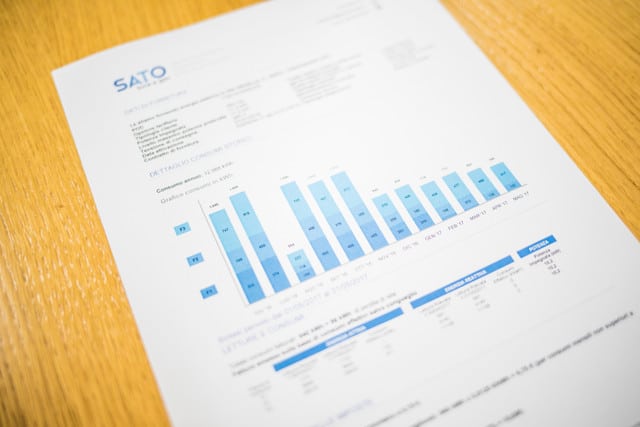Finances in a time of COVID-19

With the world overtaken by the current healthcare crisis of COVID-19, we all face much uncertainty and many challenges ahead, both personal and professional. Keeping ourselves and our loved ones healthy is of course the main priority for everyone right now, but when this is over, and it will be over, we face the question… what then?
Some of us may not have jobs to return to and many of those who do return to employment will face a different landscape and work culture for sure, perhaps with an altered salary too. But for those who are self-employed or run small businesses (or even large ones), it can feel like a lonely survival battle as work changes shape and income wavers.
We wanted to share with you some advice from BBB Partners ‘We’ll Mind Your Own Business’ (WMYOB) who specialise in accounting and bookkeeping, tax calculations, submissions and tax credits, payroll and pensions management, meaning they are perfectly positioned to advise BBB members across a variety of financial situations. WMYOB sent us their guidance as finance professionals and we hope you will find useful.
(All info correct at time of publishing but please seek professional advice if later).

Job Retention Scheme and Statutory Sick Pay (SSP)
The Government has announced that under the Job Retention Scheme, all UK Employers will be able to access support to continue paying part of their employees’ salary – where they would have been otherwise laid off. This does mean that the employee must take up a “furloughed” status and must not conduct any work for the business during this time. If this is the case, then HMRC will reimburse 80% of the worker’s wage costs, up to a cap of £2,500 per month. It is the employer’s choice whether they ‘top-up’ the employee’s salary by the further 20%, or indeed beyond the cap – but this is not compulsory.
The scheme is due to run for at least three months from 1st March 2020 but may be extended if necessary. Although originally, it was only related to those workers who were in employment as of 28th February 2020, as of 15th April 2020, the eligibility of the scheme extended to 19th March 2020. However, an RTI submission notifying payment in respect of that employee must have been made to HMRC on or before 19th March 2020 in order for them to qualify.
Employers will be able to use a portal to claim for 80% of ‘furloughed’ employees’ usual monthly wage costs up to the cap of £2,500, plus the associated Employer National Insurance contributions and minimum automatic enrolment pension contributions. These contributions on any additional top-up salary, as decided by the employer, will not be funded through the scheme though.
It is unlikely that any contract in place with employees will contain a clause around furloughing and therefore it is important to discuss these changes directly with employees and gain their written approval over their furloughed status. There should be written evidence that this communication has taken place and both parties agree to the implications. This should also include the date that the status was changed and you should ensure they undertake no further work beyond this date to be eligible for the scheme.
It is possible for an employee who has more than one job to be furloughed. Each job is to be treated as separate and the cap will apply to each employee individually. If the individual’s pay varies and they have been employed for a full 12 months prior to the claim, there are two options available, whereby you can claim the higher of:
– The same month’s earnings from the previous year (ie April 2019)
– The average monthly earnings from the 2019-20 tax year.
If they have been with you for less than a year, it would simply be the average earnings for the months completed so far, and if they joined in February, use a pro-rata calculation for their earnings to date.
You can submit one claim at least every 3 weeks – which is the minimum length an employee can be furloughed for. In order to make a claim, although WMYOB can of course assist you with this as part of their services, you will need: a PAYE reference number, number of employees being furloughed, the claim period, amount claimed, bank account/sort code for payments to be made into, contact name and phone number. Payments will be made by BACS into the provided UK bank account once they have been received and reviewed.
HMRC do retain the right to retrospectively audit all aspects of your claim.

Self-Employment Income Support Scheme
The Chancellor also announced a support package to those who are Self-Employed and have lost income due to COVID-19. This scheme will allow those who are Self-Employed to claim a taxable grant worth 80% of their trading profits for the next 3 months.
This scheme is not open yet and HMRC will contact you if you are eligible for the scheme and invite you to apply online.
To qualify, you must:
– Have submitted your Income Tax Self-Assessment for the tax year 2018-19 (If you have not submitted this return yet, the deadline has been extended to 23rd April 2020)
– Traded in the Tax Year 2019-20
– Are trading when you apply, or would do except for COVID-19
– Intend to continue to trade in the tax year 2020-21
– Have lost trading profits due to COVID-19.
You must also have trading profits of less than £50,000 and demonstrate that more than half your income comes from Self-Employment.
You will receive a tax grant up to 80% of the average profits from the tax years 2016-17, 2017-18 and 2018-19.
In addition, or in replacement, of this scheme, there is further help available through the deferment of Self-Assessment payments due in July 2020 until January 2021, increased amounts of universal credit and the business interruption loan scheme.
Should you have any further questions about these schemes or anything else that WMYOB might be able to help with, please do get in touch.

Deferring VAT and Income Tax payments
The government has announced a 3-month deferment in Valued Added Tax (VAT) payments for all UK businesses. Consequently, any payment which would have been due at any point in the period 20th March 2020 and 30th June 2020 will now have been deferred automatically. You will now have up until the end of the 2020/21 Tax year to pay any liabilities accumulated during this period. VAT refunds and reclaims will be paid by the government as normal.
It was also announced by the Chancellor, that anyone who has Self-Assessment payments due on 31st July 2020 will also have these deferred – until 31st January 2021 in this case.
In addition to the above, HMRC has also extended the scope and availability of its ‘Time to Pay’ service. This will allow companies to come to a specific arrangement with HMRC on the payment of it’s other tax liabilities. WMYOB can assist in making the call and negotiating with HMRC in this instance if helpful.

Support with Business Rates
The Chancellor also introduced business rates holidays for businesses in sectors that the Government considered could be most adversely affected by the outbreak.
These include:
– Business rates holiday for retail, hospitality and leisure businesses.
– Cash grants for retail, hospitality and leisure businesses.
– Businesses that pay little or no business rates because of small business rate relief (SBBR) or rural rate relief (RRR) are eligible for a one-off grant of £10,000 to help meet their ongoing business costs.
In almost all cases, your local authorities will send through updated business rates to you and therefore this will occur automatically. If this has not been the case, or you feel you qualify for any of the above please do get in touch and we would be happy to review this alongside you.

Coronavirus Business Interruption Loan Scheme (CBILS)
You could also be eligible to access the new Coronavirus Business Interruption Loan Scheme – which allows access to working capital up to £5 million. The government will pay to cover the first 12 months of interest payments and any initial set-up fees – although some providers have already waivered these. To give lenders further confidence in continuing to provide finance to SMEs the government will provide lenders with a guarantee of 80% on each loan (subject to a per-lender cap on claims).
There are currently 40+ lenders who are signed up to this scheme and you should apply with them directly. WMYOB will be delighted to assist in putting the application pack together – which will have to include a borrowing proposal which were it not for the current pandemic, would still be considered viable.
**WMYOB** are happy to discuss these issues or anything else with BBB members and Partners, just get in touch for an intro to the most suitable person on the team at info@thebbbook.com.





